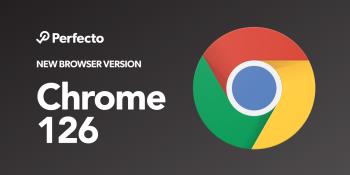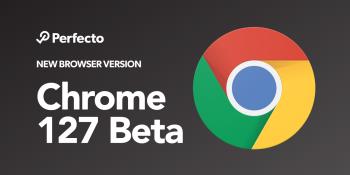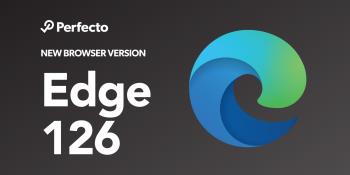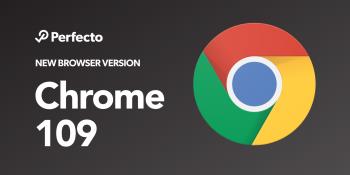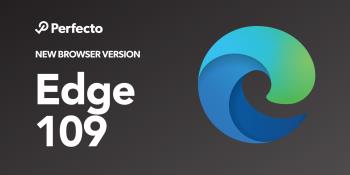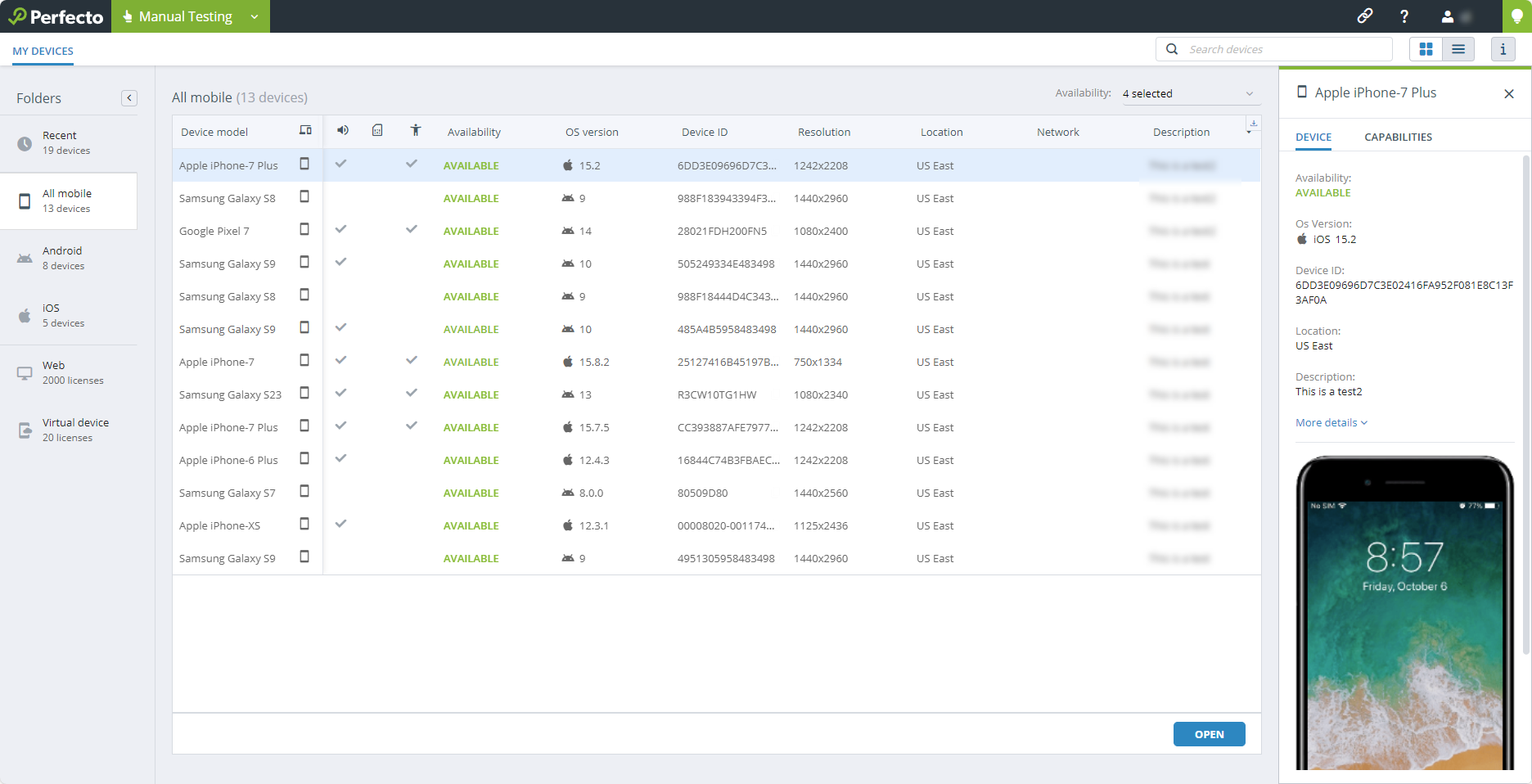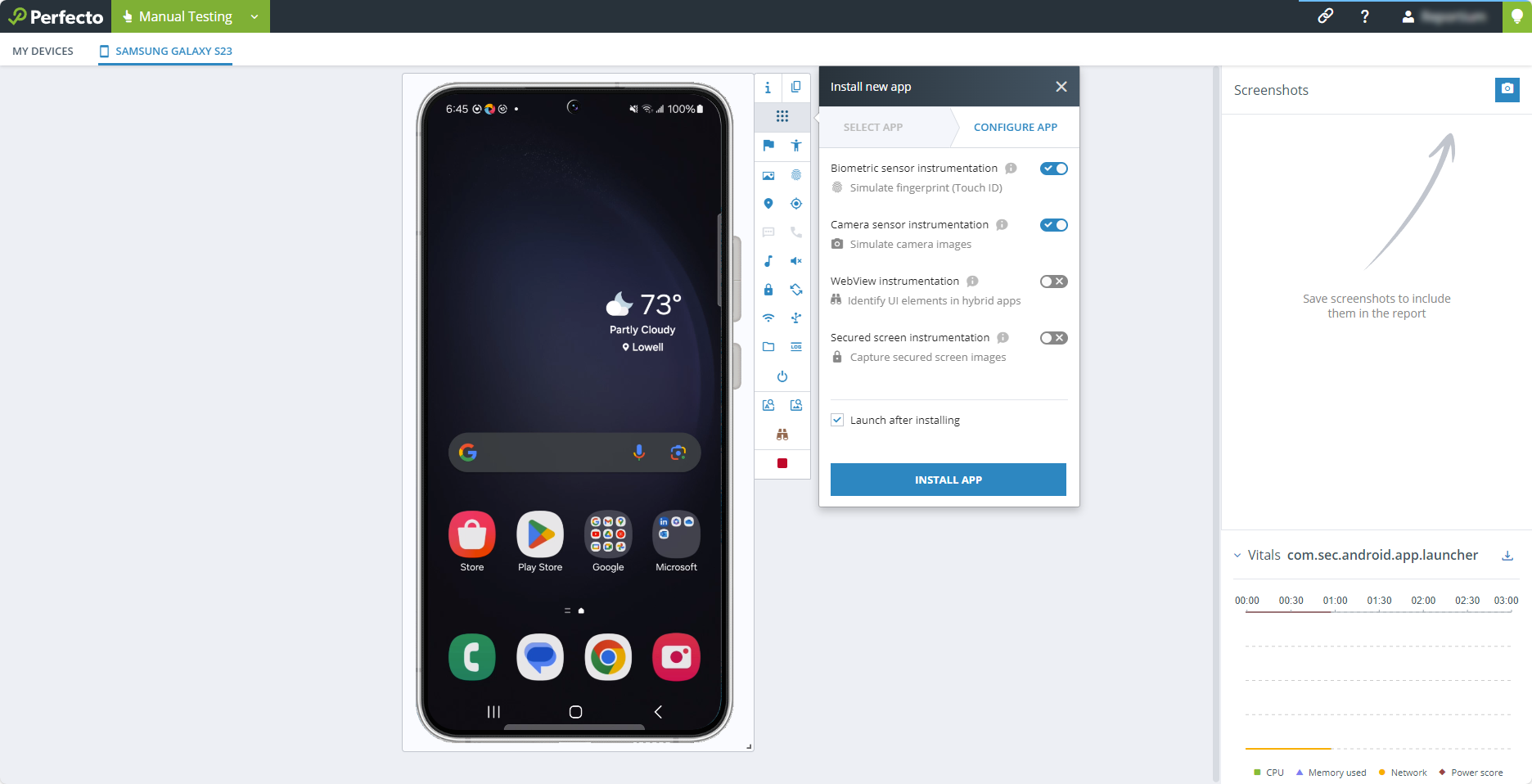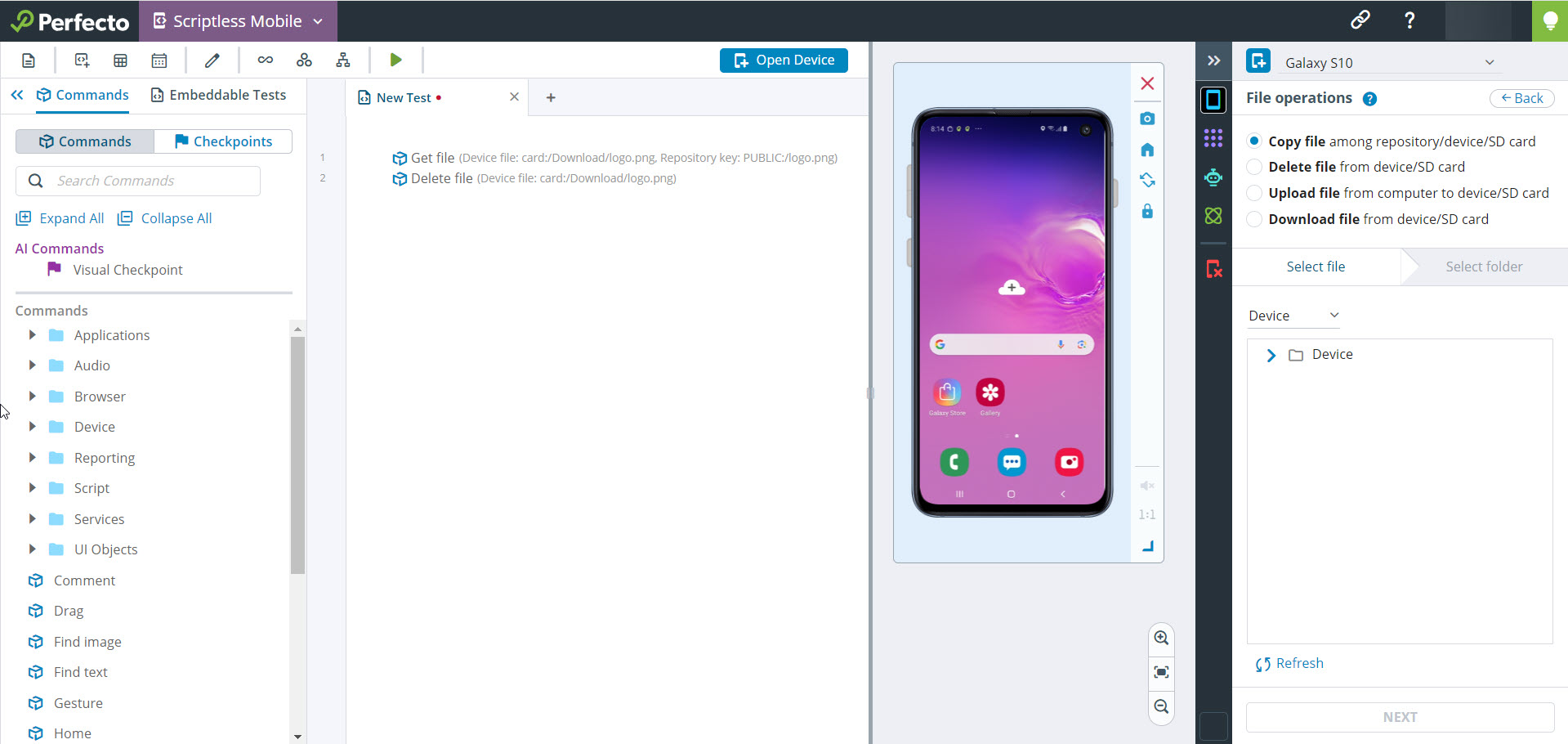See what's new in Perfecto 24.8 (released on June 30, 2024):
Perfecto upgrade to Appium 2
To provide a stable experience and leverage the latest Appium testing features, Perfecto clouds will soon switch to Appium 2 as the default Appium execution option. Appium 2 is available in all Perfecto hybrid and enterprise clouds as of June 30, 2024.
The transition to Appium 2 follows a phased approach:
-
Phase 1 (June 30 to August 10, 2024): Appium version 2.4.1 is installed in all Perfecto hybrid and enterprise clouds and becomes available as the latest version. Appium 1.22.3 stays the default version.
During this phase, you can use the
appiumVersioncapability to explicitly use Appium 2 for your test executions. For example:Copycapabilities.setCapability("appiumVersion", "2.4.1");Copycapabilities.setCapability("appiumVersion", "latest");Alternatively, to set Appium 2.4.1 as the default version for your cloud, contact Perfecto Support.
Appium versions 1.18.3 and 1.20.2 will be deprecated. While these versions will still work for test executions, Perfecto will no longer provide support or fixes for them.
-
Phase 2 (starting August 11, 2024): Appium version 2.4.1 becomes the default version in all Perfecto hybrid and enterprise clouds. The Appium version is configured at the cloud level. If needed, fallback to Appium 1.22.3 is available. To continue to work with Appium 1.22.3, contact Perfecto Support.
Manual testing enhancements
Usability enhancement to device opening
To open a device in the Manual Testing view, you can now select a row and click the new Open button at the bottom right.
In addition, selecting a row no longer automatically opens the device details pane on the right: The first time you log into Perfecto, the device details pane opens automatically when you select a device row. If you do not close the device details pane, it will also open automatically the next time you log in. If you close it, it will not open again automatically. You will need to click the device info button ![]() at the top right to open it.
at the top right to open it.
This small usability enhancement gives you more control over your browsing experience, making it easier to browse devices and open the device you want to test on.
To learn more, see Select a device for manual testing.
Sensor instrumentation changes
When installing an Android application that uses biometric authentication or the device camera, you can now specify which instrumentation type is needed by turning on camera or biometric sensor instrumentation, or both. Previously, these options were combined in a single Sensor instrumentation toggle. This granularity allows you more control over how the app is installed. Selecting only the option you need may reduce installation time.
If your organization performs automated testing, these new options are backward-compatible with existing API endpoints and capabilities. In your Android tests, consider specifying only the instrumentation type needed.
To learn more, see Application management.
Scriptless Mobile enhancements
File operations
With Scriptless Mobile, you can now perform file operations on an open device, including copying, uploading, downloading, and deleting files. You can also search for files in the Perfecto repository.
To learn more, see Conduct file operations.
REST API enhancements
New endpoint to retrieve list of virtual devices
In enterprise and hybrid clouds, you can now use the supportedModels endpoint to retrieve a list of supported virtual device models and versions. This information is helpful when setting up the capabilities in tests that utilize virtual devices.
To learn more about this endpoint, see Get Supported Models.
New endpoint to connect device to cradle
Lab Admin users of Perfecto can now control to which handset server (HSS) cradle a device is connected by using the new connect endpoint.
To learn more about this endpoint, see Connect Device to Cradle.
Quantum 1.31.0
Quantum 1.31.0 is now available. This release introduces updates to 3rd-party tools and a range of new features and enhancements, such as fixes to security vulnerabilities, Javadoc listing all Perfecto-related methods available, and parallel downloading of reports.
This version includes breaking changes that may impact you. You will need to update your automation scripts to ensure they will run smoothly.
To learn more, see the Quantum 1.31.0 release notes.
End-of-life notice
iOS 12 will be declared end-of-life (EOL) on July 21, 2024. After this date, devices running iOS 12 will no longer be available in Perfecto.
For details about the Perfecto support policy, see Suspension of support policy | Mobile device OS.
Platform support | Real devices
New iOS versions
You can now test your applications on real devices running the following new iOS versions:
-
18 Beta 1
If you are interested in having iOS 18 Beta 1 devices connected in your cloud, contact Perfecto Support.
-
17.6 Beta 1
All limitations for iOS 16.x versions still apply.
For complete support information, see iOS support updates.
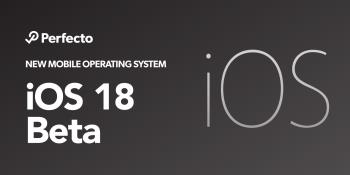
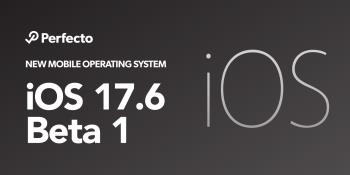
New Android versions
You can now test your applications on mobile devices running Android 15 Beta 3. This version is currently not supported with the Screen Copy video agent.
If you are interested in having Android 15 devices connected in your cloud, contact Perfecto Support.
For complete support information, see Android support updates.
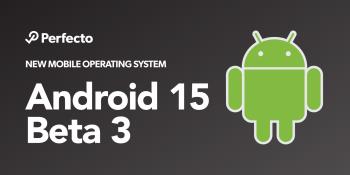
Platform support | Virtual devices
Appium 2.6 and 2.10
You can now test your apps on virtual devices using Appium 2.6 or 2.10 with an Appium 2-compatible client.
To learn more about working with virtual devices, see the Virtual mobile devices section in our documentation.
For upgrade information, see Upgrade to an Appium 2-compliant client and Sample project: Appium 2-compliant client and Selenium 4 .
New default devices
When no device model or OS version is specified, Perfecto now selects the following default devices:
-
For simulators: iPhone 15 with iOS 17.5 (instead of iPhone 14 with iOS 16.4)
-
For emulators: Pixel 8 with Android 14 (instead of Pixel 7 with Android 14)
New simulator devices
You can now test your applications on the new simulators listed in the following table. For an updated list of devices and versions, see Supported simulator devices and OS versions.
| Device | iOS version |
|---|---|
|
iPad Pro 13-inch (M4) (16GB) |
17.4, 17.5, 18.0 |
|
iPad Pro 13-inch (M4) |
17.4, 17.5, 18.0 |
|
iPad Pro 11-inch (M4) (16GB) |
17.4, 17.5, 18.0 |
|
iPad Pro 11-inch (M4) |
17.4, 17.5, 18.0 |
|
iPad Air 13-inch (M2) |
17.4, 17.5, 18.0 |
|
iPad Air 11-inch (M2) |
17.4, 17.5, 18.0 |
New iOS versions
You can now test your applications on simulators running iOS 18 Beta 2. This version is only available at limited capacity.
The Apple-reported known issue related to Safari that would cause simulators to hang has been resolved. For details, see Apple's iOS & iPadOS 18 Beta Release Notes.
For an updated list of devices and versions, see Supported simulator devices and OS versions.
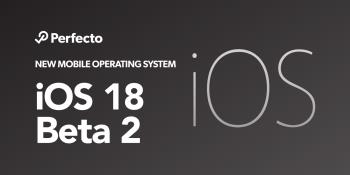
New Android versions
You can now test your applications on emulators running Android 15 Beta 3.
For an updated list of devices and versions, see Supported emulator devices and OS versions.

Browser support
You can now test your applications in the following new browser versions:
-
Google Chrome 126 Stable and 127 Beta on Windows and Mac machines
-
Mozilla Firefox 127 Stable and 128 Beta on Windows and Mac machines
-
Microsoft Edge 126 Stable on Windows machines
To test your applications on an older browser version on Windows, you can now use the following:
-
Google Chrome 109 Stable
-
Mozilla Firefox 109 Stable
-
Microsoft Edge 109 Stable
This version replaces version 100 Stable.
Being able to test compatibility with older browser versions ensures that customers using legacy systems can access and utilize your application.
For a complete list of supported browsers, see Supported platforms.
